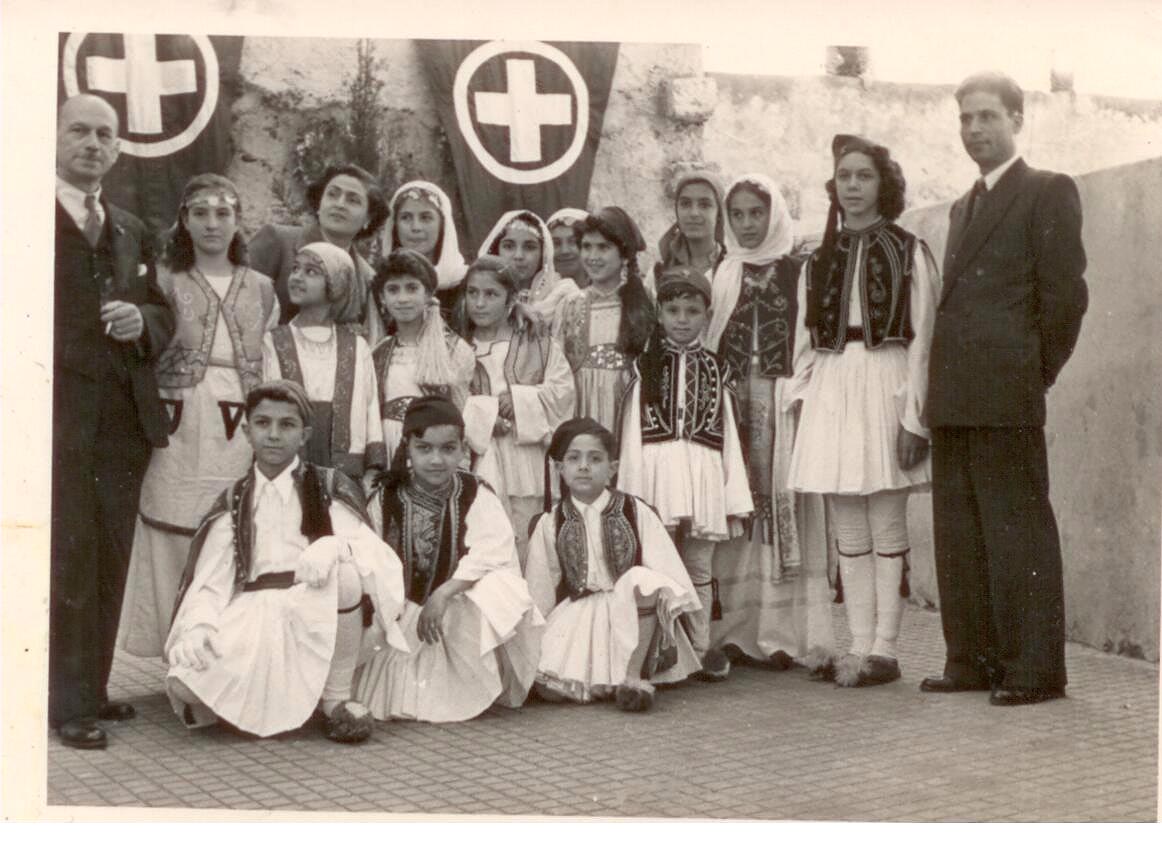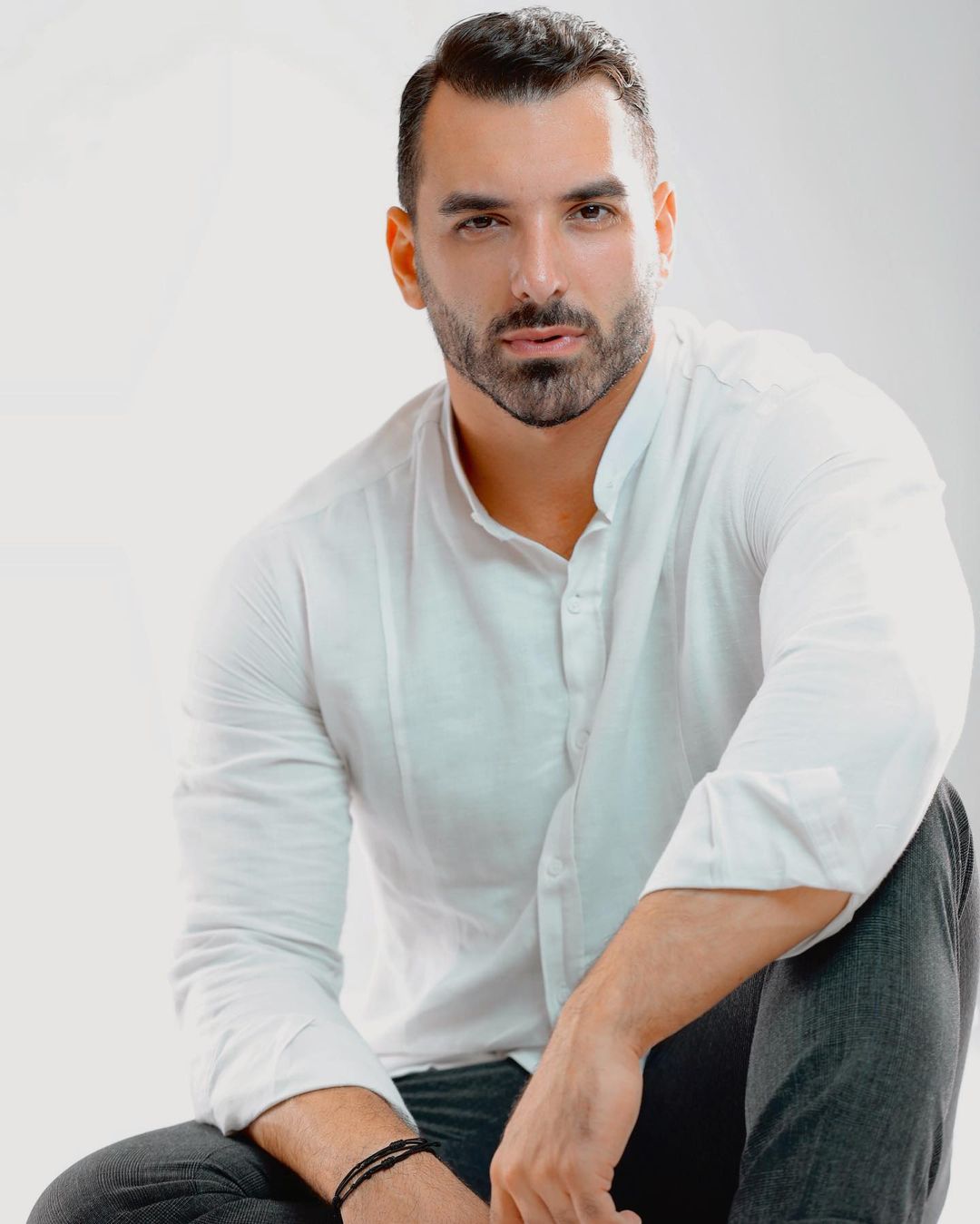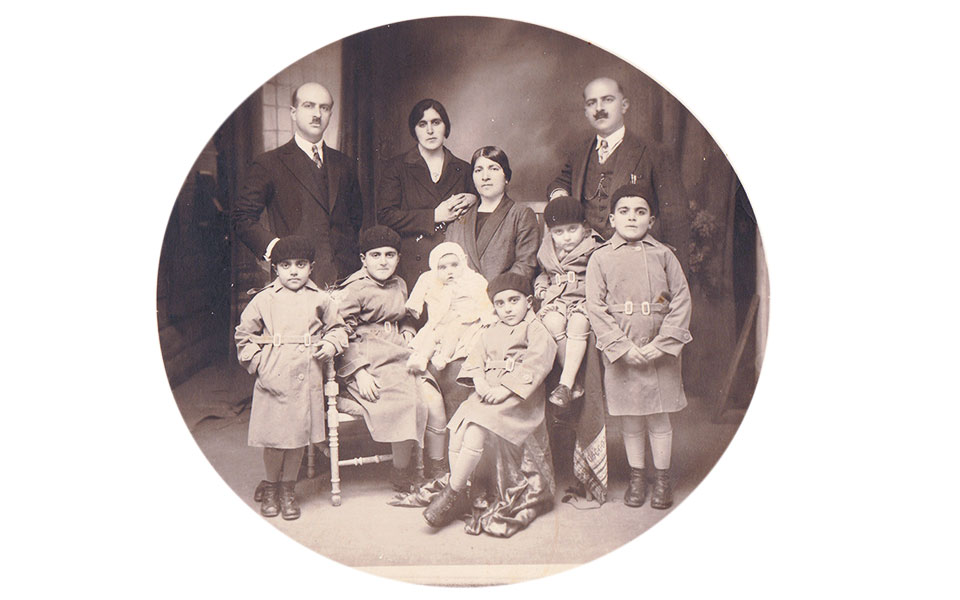
It may have been more than 100 years since their families settled in Lebanon, but never cease to remember their country of origin and speak of it with trepidation. hundreds Greek Lebanesedescendants of Greeks who took refuge in an Arab country after Catastrophe in Asia Minor and at other important historical moments of the 20th century, they claim that there are many things that still connect them to Greece – music, food, religion and sometimes even language. Therefore, in the era of globalization and the Internet, many look back at family records and seek a closer relationship with the country, also claiming Greek citizenship. The two countries are only slightly distant geographically, their cultures are similar, while Greece’s European identity inspires security in Beirut’s expatriates, whose lives have become difficult since 2020. “K” spoke to three young Greek-Lebanese men about Greece and what naturalization means to them.
Remos and king pie
He fanatically listens to Antonis Remo. She is preparing a royal pie for the New Year. She often recalls the stories of her grandmother Aphrodite, who taught her Greek. Two generations have passed since her family. Patricia Changouri moved to Beirut. Grandmother Aphrodite, born in 1936 in Lebanon, had two marriages and five children, Patricia is one of her granddaughters. She also traveled to Lebanon and Nigeria. “I lived as a child and later as a wife and mother in Nigeria,” explains “K”. “I left Nigeria with my three children at a time when the kidnapping of children from wealthy families was rampant.”
He has been in Lebanon since 2008 but travels a lot. Her favorite destination is of course Greece “and above all Santorini”. “My way of life remains Greek” he says “K” from Beirutwhere everyday life has now become very difficult. “We have a very strict withdrawal limit, so a lot of people can’t use their deposits,” he explains. “At the same time, crime has increased significantly and we have very frequent power outages.”

In 2013, Patricia applied for Greek citizenship, which is shared by the rest of her family members. “At first I presented my mother’s passport, but it turned out that this was not enough.” She collects all the necessary documents and is interviewed at the consulate to assess her knowledge of the country, culture and language, as required by law. “They told me to be patient because there were a lot of applications from Lebanon, then they explained the delay with a change of government, from 2016 to 2019 I was told that only one signature was pending,” he recalls. A negative response came in 2019 because it “does not meet the conditions required by law”. Wanting to understand at what point her statement is missing in relation to the rest of her family, she contacted six lawyers. “Everyone gave me their own interpretation. One asked me for 600 euros to find a reason, another argued that I should have done it before I became an adult, the third thought that if my mother was one hundred percent Greek, I would have been naturalized automatically,” he says revealingly.
“I’m going on vacation and shopping to Turkey without a visa, why can’t I do the same in Greece, where I’m from?” he wonders. And he adds that “in Egypt and the Maldives, it is issued immediately at the airport.” The Greek and, accordingly, the European passport also provide security. “You feel like you have a second home, like a married woman who lives in a house owned by her husband, but knows that if something goes wrong, she can leave.”

Her eldest daughter is preparing to leave to study in Spain. “Under other circumstances, he could have come to Greece,” he notes bitterly. Those who are familiar with the system suggest that they use it. “Golden Visa” get direct access to Greece (including the “Golden Visa” offers a residence permit). “I do not want to acquire Greek citizenship in this way, although I am seriously considering buying a house abroad as an investment.”
“Family Trauma”
The two countries are only slightly distant geographically, their cultures are similar, and Greece’s European identity makes Beirut expatriates feel secure.
The ancestors of the 33-year-old man arrived in Lebanon as refugees from Antioch. Jennifer Andreawho works for a multinational company in Beirut. “30 years ago, my father and uncle tried to get citizenship through a lawyer, but the lawyer turned out to be unreliable, took a large amount of money and disappeared.” The two emigrants were disappointed. “It’s a family trauma, they didn’t want to have to deal with it again,” explains Jennifer. “They tell me: “If you want, try it yourself now.” Her Greek surname and Greek Orthodox teaching are definitely strong cards for Jennifer, who hasn’t ventured into it yet. “My dream is to naturalise, buy a house – ideally in Glyfada – and maybe even live in Greece for a few years,” concludes the 33-year-old.

“All my life, everywhere I went, everyone told me: “You are not Lebanese,” the 32-year-old actor says today in broken Greek. Ilias Christophoridis. His great-grandfather Ilias moved from Greece to Beirut. “In 1995, my father was told that in order to renew his Greek passport, he had to go to Greece to register in the population registers, he did not have the opportunity, and therefore he could not renew his passport,” says his son. Today. Since then, references to Greece in the family have dwindled.
“He felt that this door was closed forever,” emphasizes Ilias, who, upon reaching adulthood, begins to look for a connection with his roots. “Initially pop music, Sakis Rouvas, Paparizou and Vissi were my greatest admiration when I was a student at the Beirut Conservatory,” says the young actor, who has become one of the most popular actors of his time. Generation in Lebanon · This year he is filming a theatrical adaptation of Chicago and a new Netflix production. “Then I started reading history and mythology systematically.” Community Greek courses will start in 2019. “Due to COVID, classes are temporarily interrupted,” he notes. Almost at the same time, there is a big explosion in Beirut and a large-scale crisis in the country follows. “Many of my peers have gone to Dubai and Saudi Arabia because the conditions here have become difficult,” he emphasizes.
“My first contact with the embassy was in 2015 when they told me I had a mild case.” Father and son applied in early 2016. “My father received a positive response in March, and mine two weeks ago.” At the same time, a certificate of completion of the first language level was issued. “I believe you can’t have a Greek passport if you don’t speak Greek,” he concludes as he plans to buy his first home in Greece.
The above cases are not isolated, which was confirmed by the President of the Greek community of Beirut, Mr. Panos Andriotis. It is recalled that during its heyday the community reached 30,000 people, which gradually decreased. The latest estimate is 7,000 people. “We estimate that 5,000 people have citizenship, and about 1,000 are in some stage of the naturalization process,” he notes.

Lost Documents
“Most people wait over ten years for the process to be completed, whether their application is rejected or accepted.” According to him, “each case is individual, but the general problem is that persons whose families arrived directly from Asia Minor after the Asia Minor Catastrophe have no documents at all (birth certificate, marriage certificate, marital status) and it is extremely difficult to find them. now, 100 years later, in the Turkish archives or request them from the authorities.” As indicated NGO “In Beirut”, a series of historical events, the destruction of Smyrna, persecution by Constantinople in 1955, the First and Second World Wars, and the Lebanese Civil War in 1975 are often the cause of the loss of important family documents. “Many family properties were burned or completely destroyed during the war in Lebanon,” – says a representative of the public organization “K”.the purpose of which is to preserve Greek culture.
“It is significant that the Mazitsis family, who arrived from Izmir in the 22nd and established Lebanon’s first rubber shoe factory, kept their identity cards and all their valuable Izmir property documents in a safe in their shop in the center of Beirut, in Al- Maarade. Street. During the war, the store burned down and the safe was stolen. There are about 200 families who today cannot submit a complete dossier, but have Greek surnames, such as Papadopoulos.”
MIA circles point to “K” that there are much fewer applications from Lebanese citizens, they urge those interested to learn about the necessary documents from the ministry’s website and not to contact “intermediaries”.
Source: Kathimerini
Ashley Bailey is a talented author and journalist known for her writing on trending topics. Currently working at 247 news reel, she brings readers fresh perspectives on current issues. With her well-researched and thought-provoking articles, she captures the zeitgeist and stays ahead of the latest trends. Ashley’s writing is a must-read for anyone interested in staying up-to-date with the latest developments.